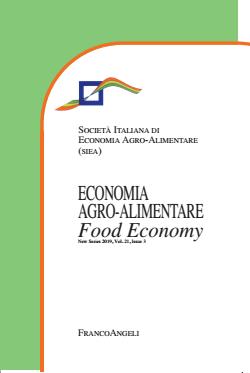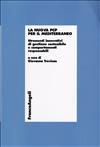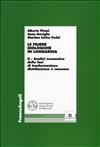Innovazione e competitività nella trasformazione di prodotti da agricoltura biologica: il caso delle imprese artigiane agro-alimentari lombarde - Innovation and competitiveness of organic food artisan enterprise in Lombardy The present work is inspired by the observation that today "innovation" is frequently a key word for Italian food industry. It seems that this is the only way to successfully face global market. We can see that the food industry is following two different strategies: on one hand there are enterprises, more and more specialized, industrial production oriented whereas on the other hand there are enterprises oriented towards high quality, value added and niche productions. The aim of this work is to investigate behaviour of organic artisan enterprises in Lombardy and to take it as an example of how much innovation helps to increase small enterprise’s competitiveness. Particularly the study regards two of the main regional supply chains, dairying and cereal from organic agriculture. It tries to determinate new ways to get good economic performance and, consequently, new ways to take part in the strategic choices. The work tries to check also acquisitions of innovation and which role innovation plays in a business strategy based on an upgraded concept of differentiation. This means, therefore, to focus the attention on the strategic nature of innovative choices and to define what each artisan enterprise is able to do: in an exclusive way; distinguishing it from the contenders; showing it to costumers; maintaining a special position in the market. The method of survey to define resources and ability of each organic artisan firm of the sample, is the Dynamic capabilities approach. The study evidences the key-resource and the key-capabilities combination on which is based the introduced innovation and it describes the main course of this particular sector. The data reveal a prevailing asset: marketing ability is the opportunity that a lot of enterprises efficiently use to differentiate the own distributive system - export is an example - and also to satisfy different customers. This attitude shows a resources and capability configuration more complex than the other. A systematic approach toward innovation in small enterprise, involving all the actors of the supply chain, could carry best economic improvements. Organic market, despite of the conventional one, is a new sector and it offers several opportunities to successful marketing initiative. New products, new services, new communications can attract more customers at all levels.
JEL Codes: Q13, L10
Key words: innovation, competitiveness, firm strategy, agricultural and food-artisan Enterprises







